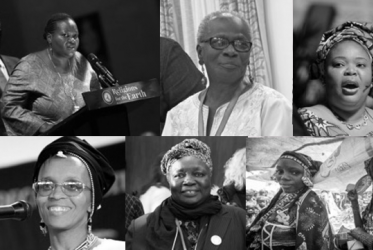Displaying 1 - 11 of 11
Pan-African Women of Faith and the Vision of Christian Unity, Mission, and Justice
01 November 2023
WCC continues to receive 70th anniversary greetings
14 November 2018
#WCC70: Nathan Söderblom, ecumenical pioneer
29 August 2018
#WCC70: A story of life
07 June 2018
Pope Francis at the World Council of Churches
31 May 2018
In Ghana, women bring open minds, honest words
05 July 2016
Basel University honors Ghanian Methodist theologian
09 December 2015







